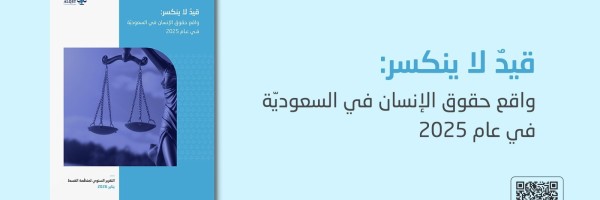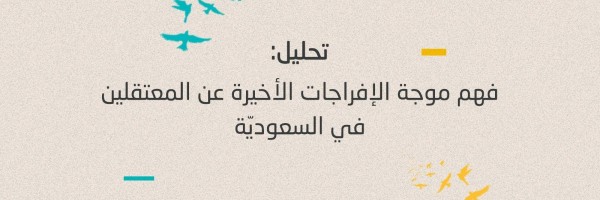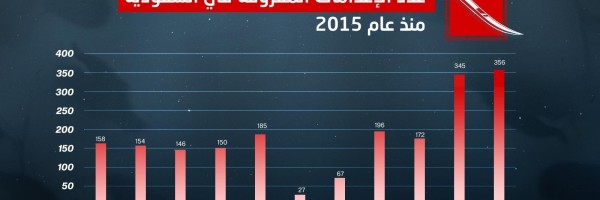تعمل الصحافة على مساءلة الحكومات ومسؤوليها والشركات والمجتمع ككل، لكن عددًا متزايدًا من العاملين في هذا المجال يتعرضون اليوم للهجمات والمضايقات والمحاكمة والسجن لممارسة هذا العمل الضروري، ومن يرتكب هذه الهجمات يتلقى حصانة كاملة.
ورغم التقييد القديم لحرية التعبير في السعودية وما تعرضت له المطبوعات من قمع تعسفي ومن ثم تقييد قانوني بنظام المطبوعات والنشر لعام 2000، فقد وضع نظام مكافحة الجرائم المعلوماتية لعام 2007 إطارًا قانونيًّا جديدًا القمع حرية التعبير على الإنترنت، وموادّه الفضفاضة تستخدمها السلطات لمحاكمة الأفراد لتعبيرهم السلمي عن آرائهم بنشرها على مواقع الإنترنت أو شبكات التواصل الاجتماعي.
تواصل القسط عملها في توثيق مختلف الانتهاكات بحق الصحافة، فحيث يسود مناخ من الخوف والترهيب ويتعرض العديد من الصحفيين والكتّاب للمحاكمة وتنزل عليهم أحكامٌ مطولة في السجن بل والبعض قتل بسبب عملهم الصحفي، تسود سردية الصوت الواحد، صوت السلطات السعودية، وهنا نذكر بعض الحالات التي تبين أوجهًا مختلفة لقمع السلطات.
الصحفي اليمني مروان المريسي، اعتقلته القوات الأمنية في 1 يونيو 2018 واقتادته إلى مكان مجهول، وحرمت عائلته بعد ذلك من الحصول عن أي معلومات عنه، سواءً مكان الاحتجاز أو التهم الموجهة إليه، ولم يسمح له بالتواصل مع عائلته إلّا بعد قرابة السنة من اعتقاله في مايو 2019، وهو ما يزال رهن الاعتقال حتى الآن ولم يحاكم وقد استمر حرمانه من أحقية تكويل محامٍ وأحقية الزيارة العائلية.
الكاتبة وناشطة حقوق المرأة نوف عبد العزيز، اعتقلت يوم 6 يونيو 2018 لتعبيرها عن تضامنها مع الناشطات المعتقلات، وقد تعرضت للتعذيب الشديد والاعتداء الجنسي أثناء الاعتقال، وبدأت محاكمتها إلى جانب عدد من ناشطات حقوق المرأة في مارس 2019 ولكن تأجيل المحاكمات تكرر لأسباب مجهولة، وهي ما تزال رهن الاعتقال حتى وقت كتابة هذا النص.
الصحفي جمال خاشقجي، استدرج إلى القنصلية السعودية في إسطنبول في 2 أكتوبر 2018، ثم اغتيل وقطّع جثمانه فريق الاغتيال السعودي، ولم يعثر على جثته حتى الآن، وقد أنكرت السلطات السعودية بدايةً جريمة القتل وعرقلت جميع التحقيقات في الجريمة، لكنها تراجعت بعد ذلك وأعلنت عن تحقيقات ومحاكمات خاصةٍ بها، لكن المحاكمات كانت مسيسة وافتقرت للنزاهة والشفافية، وألقت فيها باللوم على من أسمتهم "الفرقة المارقة"، وحاكمت 11 شخصًا – لم تسمهم – في محاكمة واجهت نقدًا واسعًا، ورغم خلوص العديد من المؤسسات الأجنبية والدولية بما في ذلك مقرر الأمم المتحدة الخاص المعني بحالات الإعدام خارج القضاء أو بإجراءات موجزة أو تعسفًا أغنس كالامار إلى أنّ ضلوع محمد بن سلمان والمقربين منه في جريمة القتل أمرٌ واضح، فالمحكمة لم تتطرق لذلك أبدًا، بل وبرأت كبار المسؤولين، وفي يوم الاثنين 7 سبتمبر 2020، قررت محكمة الجنايات بالرياض تخفيف الأحكام على المتهمين من الإعدام إلى أحكام طويلة بالسجن ضد خمسة منهم، كما أصدرت أحكامًا بالسجن على ثلاثة آخرين لم يكشف عن أسمائهم، وأعلنت إغلاق القضية نهائيًّا.
وبعد بضعة أشهر من جريمة قتل جمال خاشقجي، شنّت السلطات السعودية في بدايات أبريل 2019 حملة اعتقالاتٍ استهدفت 15 كاتبًا وناشطًا ومدوّنًا في المجال الثقافي، اعتقلت فيها صلاح الحيدر، وهو ابن الناشطة الحقوقية عزيزة اليوسف التي ما زالت محاكمتها غير العادلة مستمرة، والكاتب والطبيب بدر الإبراهيم، والحيدر والإبراهيم مواطنان أمريكيّان، والكتّاب محمد الصادق وثمر المرزوقي ورضا البوري وخديجة الحربي، والصحفي عبد الله الدحيلان، والمترجم نايف الهنداس، والكاتب الاقتصادي علي الصفار، والروائي مقبل الصقار، والناشطيْن فهد أبا الخيل وأيمن الدريس، والمحامي عبد الله الشهري، والصحفي يزيد الفيفي والطبيبة شيخة العرف الذين أفرج عنهما لاحقًا في العام نفسه، وقد كانت أغلبية هؤلاء المعتقلين فاعلين في النشاط الثقافي ومناقشة الإصلاح السياسي والاجتماعي ومناصرة القضية الفلسطينية، ولبعضهم صلة بناشطات حقوق المرأة اللاتي يواجهن محاكمة غير عادلة، ويبدو أن هذا النشاط هو الخلفية التي على إثرها جرى اعتقالهم، ما يقدم دليلًا آخرًا على عدم اكتراث السلطات لحقوق مواطنيها الأساسية في التعبير السلمي عن الرأي بل وانتهاكها المتواصل لها.
وفي يوم 19 يوليو 2020 توفي الصحفي السعودي صالح الشيحي في ظروف غامضة بعد الإفراج غير المتوقع عنه من السجن، وقد اعتقل الصحفي الشهير في يناير 2018 وحوكم في المحكمة الجزائية المتخصصة وأدين وأنزل عليه حكمٌ بالسجن خمس سنوات، وكل ذلك خلال جلسة واحدة فقط، فقد اتُّهم بالإساءة إلى الديوان الملكي بعد انتقاده ما سُمّي بحملة مكافحة الفساد التي شرع بها ولي العهد محمد بن سلمان. وفي 19 مايو 2019، أي بعد انقضاء سنتين ونصف من محكوميته، أفرج عن الشيحي فجأة، وكلٌّ من شروط الإفراج وظروفه مجهولة، بما في ذلك ما إذا كان الإفراج مؤقتًا أم نهائيًّا، وفي يونيو 2020 نُقِل الشيحي إلى العناية المركزة في إحدى المستشفيات وتوفي في يوم 19 يوليو، وقد أشارت السلطات السعودية إلى أنه توفي نتيجة إصابته بكوفيد-19، لكن ظروف وفاته، مثل ظروف الإفراج عنه، ما يزال يشوبها الغموض، وذلك لأن مناخ الترهيب وتكميم الأفواه يصعب الوصول إلى المعلومة.
في هذا اليوم المكرس لإنهاء الإفلات من العقاب على الجرائم المرتكبة ضد الصحافيين، تحيي القسط كل من كرسوا حياتهم وضحوا بها لممارسة حرية التعبير، وتنادي بالإفراج عن كافة الصحفيين المعتقلين تعسّفيًا والمحتجزين في السعودية وتنادي بإجراء تحقيق مستقل في وفاة صالح الشيحي واتخاذ خطوات حقيقية وفعالة لمحاسبة المسؤولين عن مقتل جمال خاشقجي.




